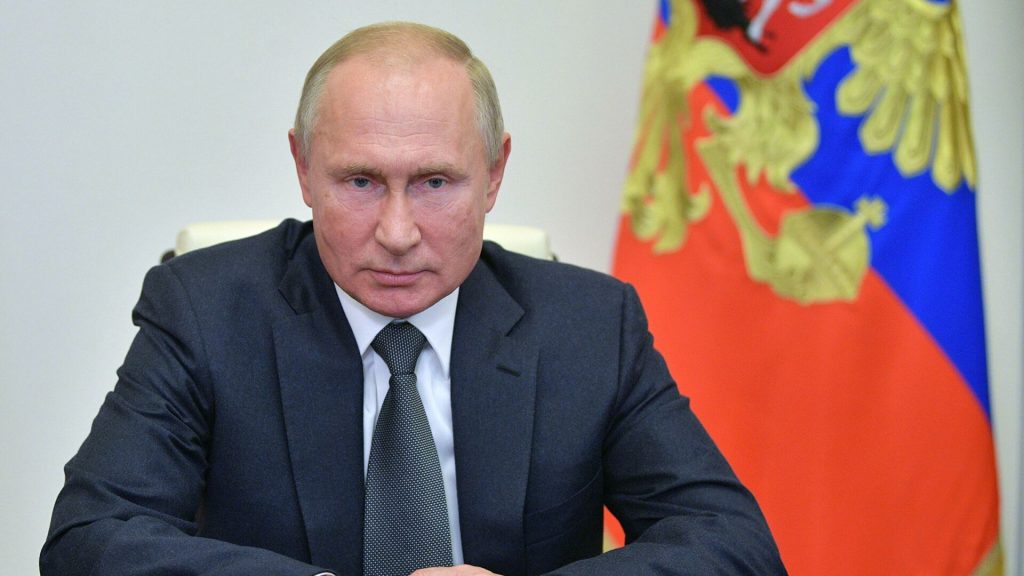
Anne Maclennan thinks western rhetoric will not deter the Russian president, while Stephen Smith is terrified by the apparent lack of concern over the risks of this crisis. Plus letters from Andrew Seber, Darra McFadyen and Margaret Owen
The problem with Russia suffering “colossal losses” (Moscow confirms attack on Kyiv during UN chief’s visit, 29 April) is that this really does not matter to its leaders. You only have to look back at historic campaigns involving Russia and its satellites to see that one of its major tactics is to keep throwing men (and women) into battle until the other side runs out of steam.
A comparison of the allied (British, American and French) cemeteries from the second world war in what was West Berlin and the Soviet war memorial in Treptow Park in the erstwhile East Berlin shows the difference in attitude to the value of human life: on the one hand individual graves lovingly cared for, each with its cross; on the other a vast arena where a statue of a Russian soldier holds aloft a child and stamps on the symbol of Nazism, while looking across to the statue of Mother Russia. Between them lie anonymous sarcophagi, each containing an unnumbered quantity of unnamed bodies.
Western rhetoric will not deter Vladimir Putin, who is a past master of the art; our politicians must find an effective brake to his ambitions in order to prevent further aggression from him.
Anne Maclennan
Cuguen, France
I was relieved to read your editorial (29 April) explicitly addressing the risks of escalation of the Ukraine war. I have been alarmed at the increasingly bellicose rhetoric of our government, politicians and commentators in the press, which has drifted towards war between Nato and Russia, without any reflection on the risks raised by a conflict between nuclear powers.
As someone who lived through much of the cold war, I am astonished and terrified by the apparent lack of concern over the risks of this crisis; where alarm bells should be ringing loudly, nuclear escalation is hardly referred to, despite nuclear Armageddon being a predictable consequence. Whereas the priority should be seeking a negotiated end to the conflict involving unpalatable compromises, all the rhetoric has been of victory and defeat. Unless this changes, the risks will only steadily increase.
Stephen Smith
Glasgow
Another brilliant piece by Simon Jenkins (Liz Truss risks recklessly inflaming Ukraine’s war to serve her own ambition, 28 April). With a prime minister who thinks he’s Winston Churchill and a foreign secretary who thinks she’s Margaret Thatcher, we are at risk of bellicose fantasy sliding into bloody reality. Putin is dangerous, but the best response to danger is rationality, not grandiose promises. Putin needs a way out. A joint undertaking by Russia and Nato to guarantee the neutrality of Ukraine (and other nations) should have been on the table to avert the invasion, but it could still be a way of offering Putin a basis for peace. He would no doubt claim it was an achievement of his demonstration of strength, but sustaining sovereignty would be the real benefit. The endgame has to be agreement, not mutually assured destruction.
Andrew Seber
Winchester
Neal Ascherson’s condemnation of Liz Truss’s dangerous rhetoric is clear and welcome (Letters, 28 April). It is founded on deep understanding of the countries and peoples who live near or around the Black Sea. His call for Truss to be put “back into her cage” should be extended to Boris Johnson and Ben Wallace, who dangerously talk up conflict as a solution and themselves as “leaders”.
Darra McFadyen
London
Many international lawyers argue that Nato is an illegal organisation since it is a political and military alliance, not exclusively focused on peace and security, although it signed up to article 2(4) of the UN charter prohibiting use of force to resolve disputes. Liz Truss ignores its peace role and is promoting the continuance of this horrendous war, rather than seeking ways to end it.
Margaret Owen
London
